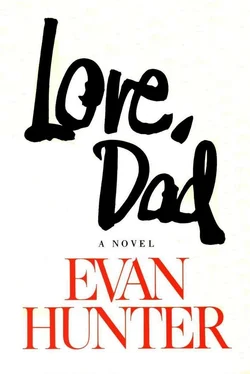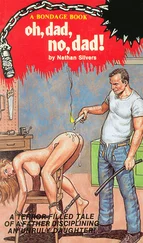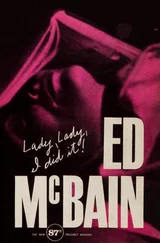In just four hours, they will meet the dogs of Shahnur.
The driver and Paul both want to push on for Kabul, which is the capital and which they are both sure they can reach before midnight. The roads will be less crowded after dark, they will make better time, and so on. But Lissie is exhausted, and she tells Paul she cannot spend another moment in the cramped cab of the truck; they have been driving steadily since early yesterday morning; her legs are stiff; this seems like a nice little village where she’s sure they can find a room for the night. She thanks the driver in English, and climbs down from the cab, almost stumbling. Paul, behind her, is clearly annoyed that they will be spending the night here. She tells him that she’s just about to get her period, which is one of the reasons she has chosen not to spend the next five or six hours in a truck with a flatulating Greek.
The village is situated in the valley through which the Arghandab River runs. As they stand on the dusty road, watching the truck rumble off northward and westward toward Kabul, she hears the first echoing chant of the muezzin calling worshippers to their sunset prayers, and sees the jagged edges of the mountaintops turning molten as though in religious response. She is desperately hungry, she realizes; she has had nothing to eat since the nan and tea early this morning. She is exhausted as well, and a bit irritable, and she wants only to find a place to eat, a place to stay before it gets dark. In the fields beyond, she can see the black felt tents of the nomad shepherds, glowing now in the rays of the setting sun. On the bank of the river, several women wearing black chadris — as the tentlike veils are called here in Afghanistan — pause in the washing of clothes and kneel to Mecca, their heads bowed, their hands clasped, behind a turbaned old man who similarly kneels and offers his prayers on the grassy bank. Lissie and Paul walk on the dirt road above the river. The shadows are lengthening.
She has not seen many dogs since they crossed the Bosphorus into Asia proper. She does not know if this has anything to do with religious belief (she knows, for example, that Islamic law does not permit the depiction of human beings or animals) or if it has only to do with exotic appetites; do they eat dogs in Muslim nations? Or is it possible that these people simply cannot afford to keep pets? She does not at first associate the skinny mongrel who comes around the side of the building with the black felt tents she sees just beyond, nor with the nomads’ sheep grazing on the greensward. She and Paul have been following the familiar aroma of broiling mutton, and are entering a walled courtyard which, they realize as soon as they see the stacked garbage, is on the kitchen side, at the rear of the low flat building. They are about to turn and retrace their steps when they see the dog entering the courtyard from the opposite end.
He is a spotted animal standing some two feet high, brown and white, with a pointed snout and glittering black eyes, a mongrel who seems to be a cross between a Doberman and a Dalmatian. “Hey there, boy,” Paul says, and is smiling and hefting his duffel onto his shoulder again when the dog’s ears go back and he bares his teeth. A low growl starts somewhere deep in his throat. He stands rooted to the spot near the cans of garbage stacked outside the kitchen, and Lissie realizes that he is only protecting his discovered turf, this treasure trove of inedible shit he has stumbled upon, and she whispers to Paul, “Let’s get out of here,” and they are backing away from the dog when suddenly he multiplies himself by two, and then by four, and there are eight dogs in that cloistered courtyard where only the spotted mongrel speaks in his low growl and in the distance the chant of the muezzin echoes and fades.
The dogs are poised and trembling.
As taut as drawn springs, they await only the hair-trigger release that will send them hurtling across the courtyard in attack. As yet, there is no barking. Only the spotted one speaks in his low growl, and the others wait and listen to the leader of the pack, their ears twitching to the modulated notes that rise and fall like the earlier chanting of the muezzin. As the sunlight fades, there are eight pairs of glittering eyes in that courtyard, fastened on these intruders who look different and sound different (she shouldn’t have spoken to Paul) and smell different from any human being they have ever known. She does not want to do anything to inspire the attack she is certain will come anyway, no sudden move, no shrill warning, especially no aroma of fear, which she is positive is seeping from every pore to pollute the air as surely as had the Greek’s farts. The leader of the pack is still growling. Perhaps he is as frightened as she is. Perhaps the growl is only his macho-dog act, perhaps he is only strutting his stuff for the seven mutts behind him, all of them watching with those glittering little eyes and those twitching ears, waiting. Cautiously, she places her hand on Paul’s arm. Watching the dogs, they begin backing out of the courtyard — and just then, the leader springs.
He seems propelled by the force of his own growl. He is airborne an instant after he begins his charge, his fangs bared as he lunges unerringly for the jugular. Lissie brings up her right arm and his jaws clamp on it, his fangs biting into naked flesh. She remembers something about hitting for the nose, and instinctively clenches her left hand and smashes the fist at the dog’s nose, remembering an instant later that it’s a shark you’re supposed to hit on the nose, a fucking shark , and wincing in pain as the weight of the animal knocks her flat on her back to the ground. His teeth are still clamped onto her forearm. The pain is excruciating. She smells the dog stink on him, and the putrid aroma of the garbage now scattered on the courtyard floor from the open can she knocked over when she fell. She does not know where Paul is, she prays with every religious remnant in her body that he hasn’t deserted her. She will pray in Islamic if that will help; just let him be there, just let him not have turned and deserted her.
The dog is gnawing on her arm as if it is the sundown meal he’d been searching for here in the courtyard. The other dogs are yapping in random frenzy, and she realizes as her eyes frantically graze the courtyard walls that Paul has fled through the gate, Paul has left her behind, Paul has run again. It is then that the truly terrifying thought comes to her: are these dogs starving? It is one thing to be bitten by an angry or a frightened animal; it is another to be eaten by a hungry one. Someone bursts into the courtyard from the kitchen door at the rear of the building. He is wearing baggy pants and a turban and an apron, and there is an ancient musket in his hands. There is another man behind him, waving a cleaver. The gun goes off. There is another shot, and the dogs begin barking now in unison against these new intruders, these shouting saviors, these nice Afghans who make such pretty rugs, these dear lovely people. She thinks But where the hell are you, Paul — and then faints from loss of blood, or hunger, or fear, or exhaustion, or everything.
August 14, 1970
Dear Mom and Dad,
Well, here I am in the city of Kabul where Paul and I have spent a day resting because we were attacked by wild dogs in the village of Shahnur just two days ago. The doctor says it will be all right for us to move on to India tomorrow, which is what we plan to do first thing in the morning. I’m very tired, and my right arm hurts like hell, so if you don’t mind, I’ll make this postcard brief.
All my love,
Lissie
Читать дальше












